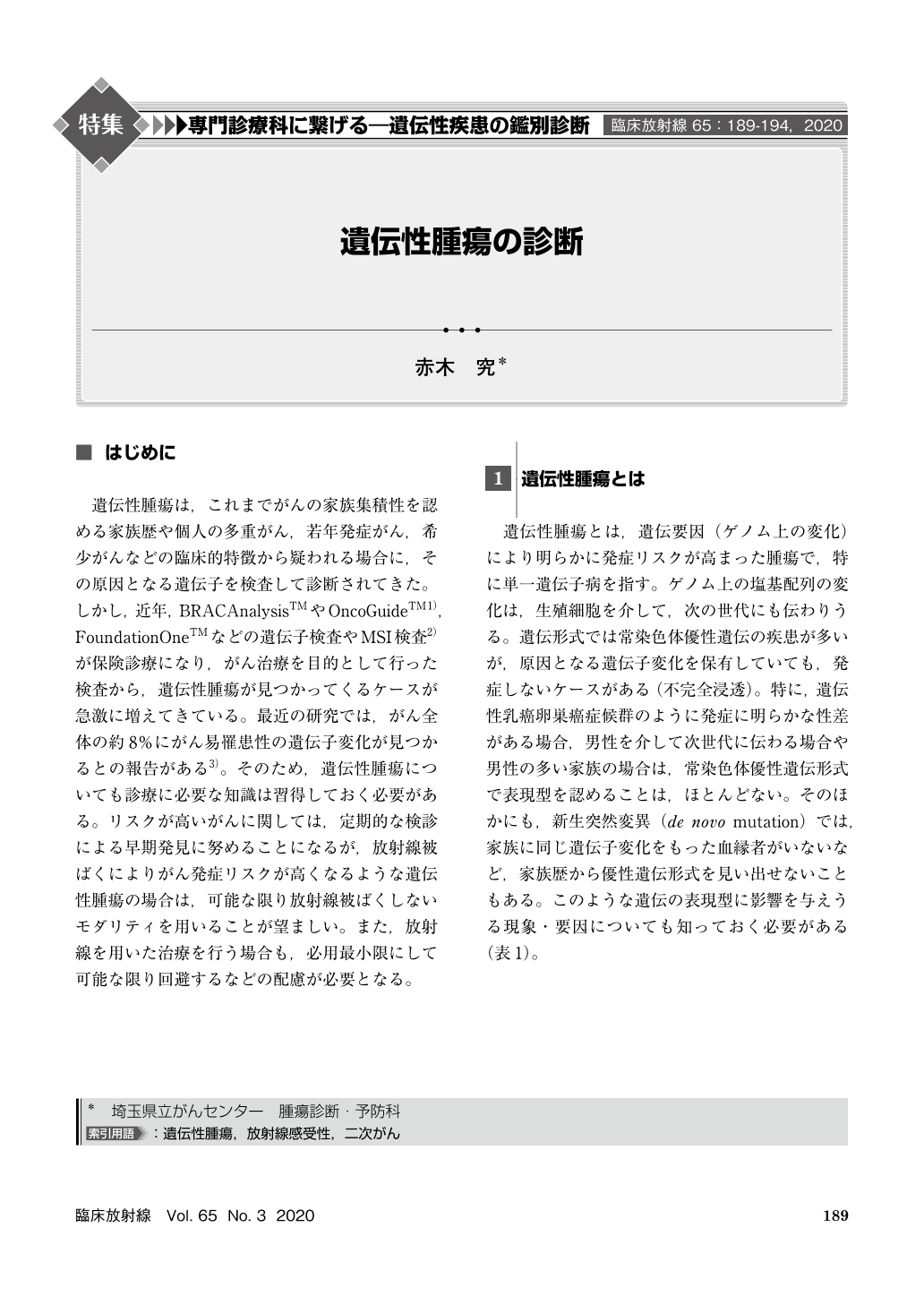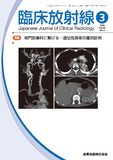Japanese
English
- 有料閲覧
- Abstract 文献概要
- 1ページ目 Look Inside
- 参考文献 Reference
遺伝性腫瘍は,これまでがんの家族集積性を認める家族歴や個人の多重がん,若年発症がん,希少がんなどの臨床的特徴から疑われる場合に,その原因となる遺伝子を検査して診断されてきた。しかし,近年,BRACAnalysisTMやOncoGuideTM1),FoundationOneTMなどの遺伝子検査やMSI検査2)が保険診療になり,がん治療を目的として行った検査から,遺伝性腫瘍が見つかってくるケースが急激に増えてきている。最近の研究では,がん全体の約8%にがん易罹患性の遺伝子変化が見つかるとの報告がある3)。そのため,遺伝性腫瘍についても診療に必要な知識は習得しておく必要がある。リスクが高いがんに関しては,定期的な検診による早期発見に努めることになるが,放射線被ばくによりがん発症リスクが高くなるような遺伝性腫瘍の場合は,可能な限り放射線被ばくしないモダリティを用いることが望ましい。また,放射線を用いた治療を行う場合も,必用最小限にして可能な限り回避するなどの配慮が必要となる。
Genetic testing has been conducted on an individual who is suspected hereditary cancer from personal history and family history. However, resent advances of genetic analysis changed situation drastically. The multi-gene panel testing such as OncoGuide and Foundation One has been conducted to explore the appropriate cancer therapy for advanced cancer patient, meanwhile unexpected genetic disease is sometimes found as incidental findings. About 8% of all cancer patients have a pathogenic variant in cancer predisposition gene. These patients and their relatives should be conducted regular medical check to detect cancer as early as possible. Although, some hereditary cancer such as Li-Fraumeni syndrome shows sensitive to radiation and radiation exposure increases cancer development. Therefore, health care worker must consider minimization of radiation exposure for these individuals.

Copyright © 2020, KANEHARA SHUPPAN Co.LTD. All rights reserved.


